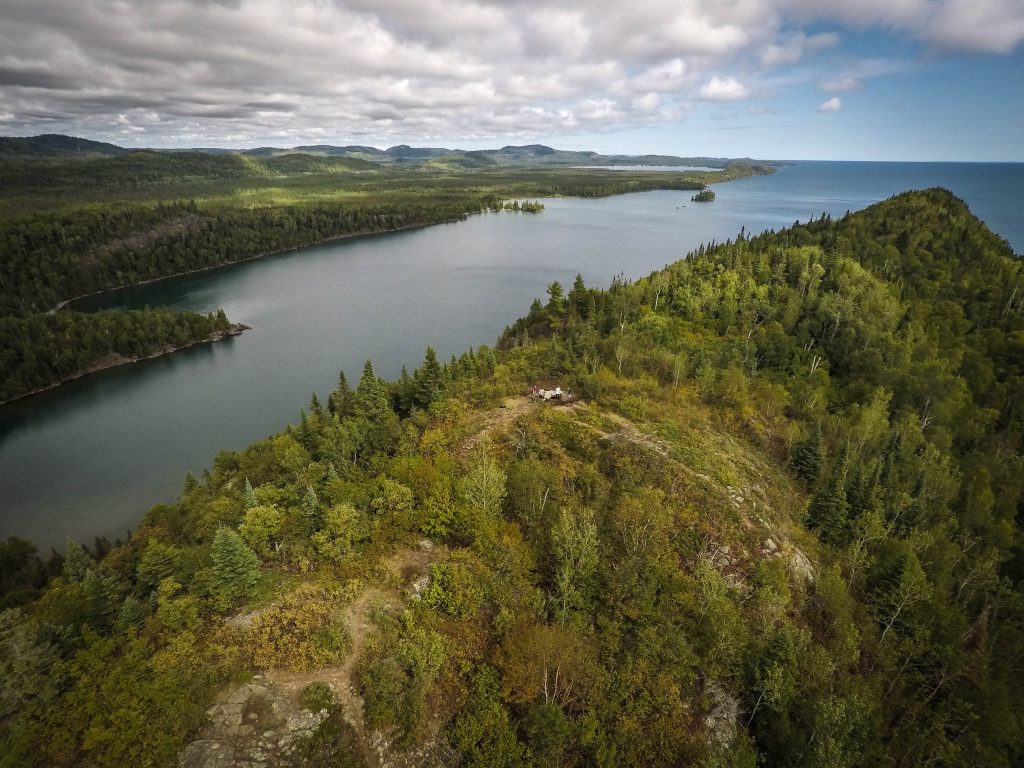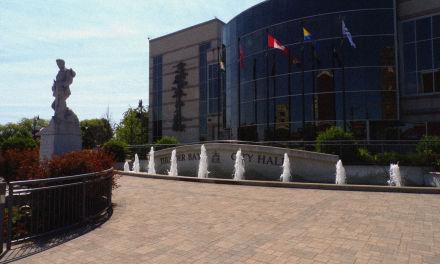Sustainability as a Matter of Culture

Story by Margaret Ryan, Photo by Darren McChristie
From the perspective of an environmentalist, things are looking up in Thunder Bay. We are surrounded by vast protected areas, our waterfront is slowly recovering from its previous life as a hub for industry that carelessly handled toxic substances and spewed untreated wastewater into our lakes and rivers for decades, and pressure on our forests is easing up since the bottom fell out of the lumber industry. Our community has slowly started to reclaim its waterfront, but do we really see ourselves as an outdoor city, and are we finally ready to turn the page on our past?
Our community is divided between those who want to continue on the same trajectory and those who want to leave the “hewers of wood and drawers of water” economy behind and move towards one that is built on sustainability. Actually, the divide might be more of a chasm, given that we’ve wrestled with it for decades (remember the chlorine bleaching debate in the 90s?). Some blame politicians who lack the will to set us on a path towards sustainability, but they are mere mortals acting in what they think are their community’s interest. Did we really want that smelter? Depends who you ask.
We’ve learned by now that we have it pretty good in terms of access to the wilderness. Many of us own a private piece of paradise and have a camp, while those of us who don’t can rent a piece in any number of parks and campgrounds. We’re an outdoorsy group, but do we truly care about the environment outside of that little piece of paradise? It seems to me that a lot of us still want to have our cake and eat it too (or drink and eat fish from our lake and shit in it too?).
Those years of industrialization of our waterfront and clearcutting in our forests left us disconnected from nature. I grew up in Thunder Bay and, although my family camped at provincial parks, I never ventured down to the lake or paddled on one of our urban rivers, and never hiked to a scenic lookout. I had no connection to Lake Superior other than as a cartographic reference point to differentiate my hometown from North Bay when talking to people in southern Ontario. I only started to explore and appreciate Thunder Bay’s surroundings after meeting someone who didn’t grow up here.
Truth be told, a person can live in Thunder Bay and rarely see Lake Superior, let alone have a reason to swim in it (too cold!) or go out on it (too rough!). Even now, with our “Superior by Nature” tagline, access to the lake is limited and there is only one public beach within city limits (barely—Chippewa is a bit of a hike). Mission Island Marsh used to have a beach that attracted swimmers, despite being located next to a coal generating station, but, the conservation authority buried it in huge rocks to prevent shoreline erosion. Surely we can do better?
We all love Duluth’s waterfront, but fail to realize the transformation didn’t happen overnight. Lake Superior is ingrained in Duluth’s culture and they’ve moved on from their industrial past to position themselves as one of America’s best outdoor towns. Grand Marais is similar—it’s all about the big lake and the wilderness up the Gunflint Trail. Maybe fewer people there have their own pieces of paradise, or maybe they are just more willing to share. Either way, we won’t see this transformation until we get behind it and finally turn the page.














